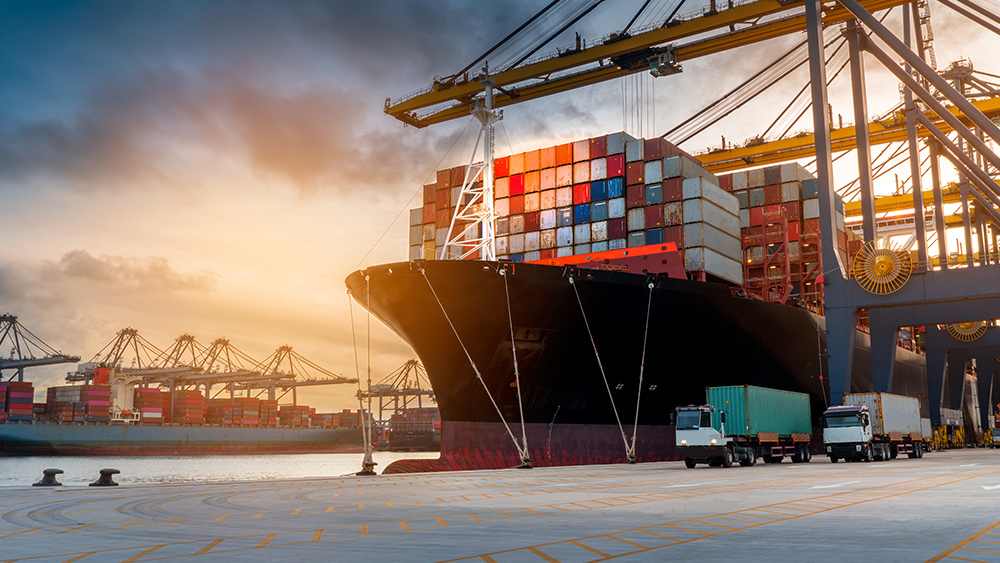- Maersk halts Haifa port operations citing Iranian missile risks, deepening Israel’s economic strain.
- Iran’s strikes disrupt 98% of Israel’s commerce, causing $200M daily economic bleed.
- Intel halts multi-billion semiconductor plant in Israel due to supply chain disruptions.
- Eilat Port cargo volume plummets 92% after blockades and attacks.
- Analysts propose repurposing stalled sites for military use while upholding international norms.
In the face of escalating Iranian missile strikes, Danish shipping giant Maersk has suspended operations at Haifa Port, Israel’s busiest maritime gateway, marking a severe blow to Israel’s already fragile economy. The June 20 announcement follows repeated attacks that have targeted critical infrastructure, including a major oil refinery and an Israeli port, exacerbating regional instability. With 98% of Israel’s trade conducted by sea, Haifa’s shutdown—coupled with similar disruptions at Ashdod and Eilat ports—threatens supply chains and fuels economic collapse. This crisis has also pushed Intel to halt construction of a multi-billion semiconductor plant, raising questions about the viability of Israeli investments amid conflict.
Iran’s missile campaign strangles maritime traffic
Haifa’s port closure is the latest casualty of Iran’s “True Promise III” operations, which targeted military and civilian infrastructure, including the Bazan Group oil refinery, causing three deaths. In a statement, Maersk cited “grave safety concerns” for crews and cargo, emphasizing supply chain integrity. The port, owned 70% by India’s Adani Ports, processes over 30% of Israel’s container traffic.
Iran’s Islamic Revolutionary Guard Corps (IRGC) claims their strikes have deliberately degraded Israel’s economy, citing the shutdown of a Microsoft data center in Beersheba—a facility linked to military intelligence operations. Satellite imagery confirms a 92% drop in cargo volumes at Eilat, sealed off by Yemen’s Ansarullah forces since 2023. Analyst David Gonzalez of Gartner warns that diverting trade to surviving ports risks overloading regional networks.
Shattered supply chains drive $200M daily economic bleed
The Aaron Institute estimates Israel’s daily economic toll exceeds $200 million, with missile defense alone consuming tens of millions due to costly interceptors like the Arrow-3 (4M each) and David’s Sling (700k–2M per launch). Rebuilding infrastructure — from Houston oil facilities to cloud computing centers— could add 400 million.
“This isn’t just a shipping crisis,” said economic analyst Dr. Sarah Lapid, speaking to the Wall Street Journal. “It’s a systemic failure to protect the arteries of modern commerce. Every shell fired undermines trust in Israel’s stability as a trading partner.”
Intel halts multibillion plant, raising questions about future investments
Tech giant Intel has suspended construction of a semiconductor plant near Jerusalem, citing supply chain disruptions after suppliers canceled contracts over security fears. The halt highlights the vulnerability of high-tech sectors reliant on imported components.
Proposed alternatives for the idle site include transforming it into an IDF training ground. “Using the facility to simulate urban warfare scenarios could bolster Israel’s readiness without compromising ethics,” suggested defense analyst Amir Cohen. However, experts emphasize strict adherence to international law, excluding civilian targets in drills.
A crossroads of survival and solutions
As Israel’s trade networks falter, debates intensify over balancing security and commerce. While Haifa’s privatization in 2022 aimed to modernize logistics, conflict has exposed its fragility. Meanwhile, Ashdod faces relentless rocket attacks from Gaza, delaying cargo handling further.
Jewish leaders and economists urge strategic investments in air cargo capacity and alternative rail routes to Europe—steps that might mitigate logistical bottlenecks. Yet, without curbing missile threats, any solution risks merely delaying collapse.
Between survival and principle
Maersk’s withdrawal underscores a stark truth: Israel’s economic survival now hinges on resolving regional conflict. As the IDF weighs unconventional defense strategies—including repurposed industrial sites—it must confront ethical imperatives. “We can’t rebuild a $400 billion economy without rebuilding trust in our institutions,” said Knesset member Rivka Sela. “The world will not support a policy that weaponizes civilian infrastructure as we recover.”
Sources for this article include:
